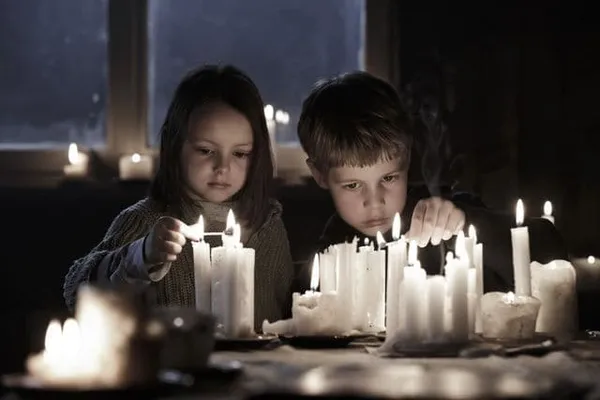Eye For Film >> Movies >> Inferno (2014) Film Review
Inferno
Reviewed by: Amber Wilkinson

People often talk about films that linger on grim and gritty social issues - and specifically poverty - as Dickensian, all the while forgetting that the author's classics while no doubt painting a vivid picture of the failings of British society in the mid-1800s, were leavened with considerable amounts of humour and romance. The same could be said of "Kafkaesque" tag - another comparison that all-too-often forgets the absurd, dark humour that was integral to the writer's work.
Although the title and quote at the start of the film indicate the influence of Dante, Vinko Moderndorfer's Inferno is likely to become a magnet for his sort of mislabelling - yet his miserabilist, humour-free approach offers almost no relief from the grey, snowbound setting as he plunges his central character into a bureaucratic and social hell from which there is no relief.

Mare (Marko Mandic) is already on the breadline. He and his wife Sonja (Medea Novak) and their children live in a freezing cold apartment, where the kids are forced to sleep under a mountain of blankets to keep out the cold, while Sonja is frequently seen scavaging in the local cemetery for oil and candles in a bid to keep warm. We come to learn that life has already dealt Mare a poor hand, made worse by the fact he has tried to stand up to The Man - in this case his boss Igor Kirov (Jerney Sugman). From here, things get worse through a litany of disasters, each piling one on top of the other and each a product of heartless Capitalism. There is no doubting Moderndorfer's intentions to present an anti-Captialistic polemic but he pushes things so far here that they become unbelievable and, by the end, almost funny by default. There's a point where you begin to play Inferno bingo, guessing what the next tragedy will be to befall the poor family - which only highlights the predicatibility of this sort of one-way story.
All of this is a shame, because in terms of its look and performances, there is plenty to enjoy here. While the washed-out greys are becoming something of a cliche in European films aiming to emphasise the economic straits many find themselves in, Moderndorfer and his director of photography Mirko Pivcevic make good use of the candlelight in the film's early stages, suggesting a positive, warm glow around the family - a contrast that is much-missed once Mare really hits the the slippery slope. Mandic is also excellent in the central role, as he emphasises the strife, determination and, ultimately, despair of Mare without becoming melodramatic - a particularly big ask given the outrageous nature of his character's descent, with Mordendorfer unwilling to stop at Dante's nine circles.
Elsewhere, there is more caricature than character, the milk of human kindness so curdled it's cheesey. Also, peculiarly for a left-wing film, Morderdorferdoesn't seem to think much of his working class characters, frequently presenting them as uncaring, heavy drinking or simply out for what they can get - at odds with the film's central urge towards sollidarity. Worth seeing for Mandic and not much else.
Reviewed on: 26 Aug 2015















